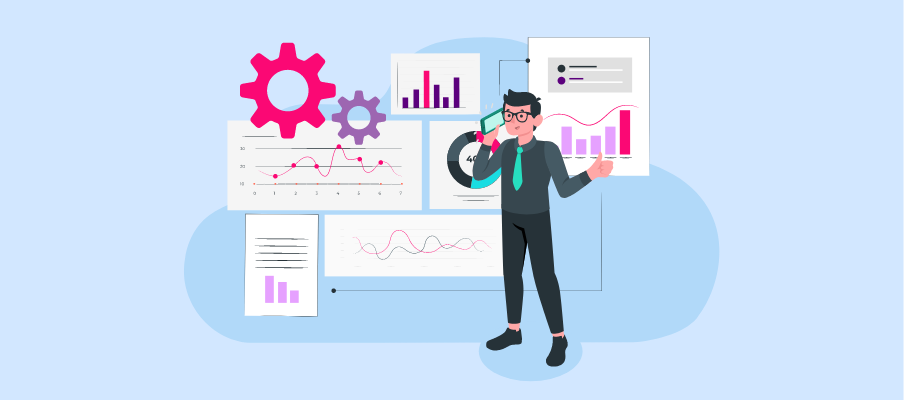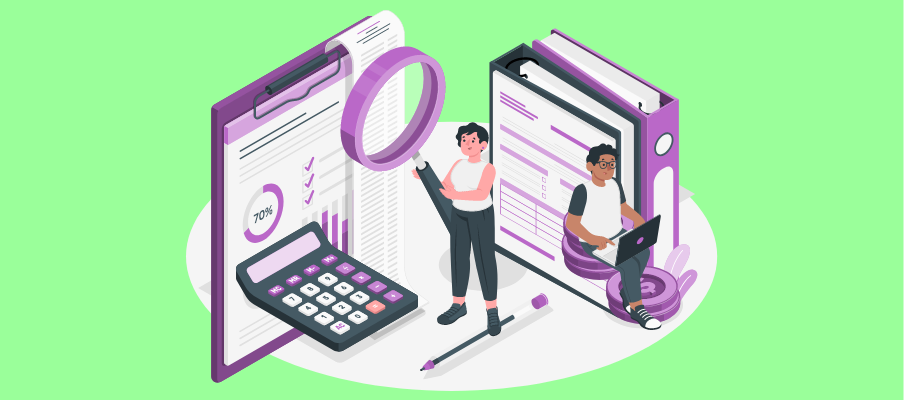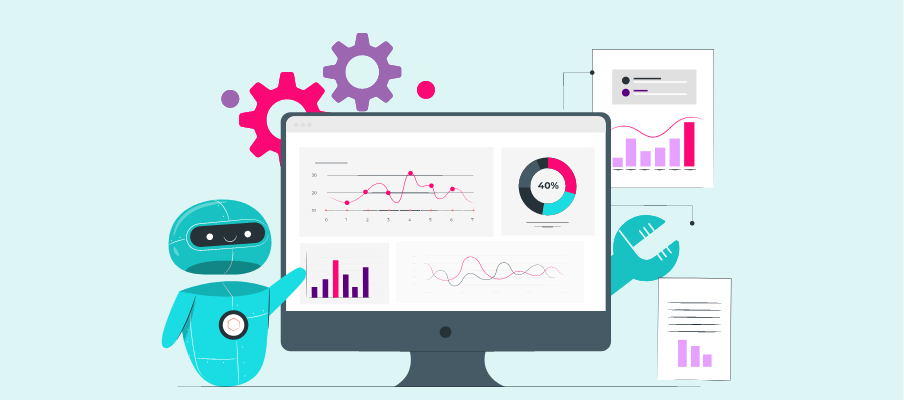Repetitive tasks like data entry, invoice tracking, and expense categorization can eat up valuable time. Automated bookkeeping tools take these tasks off your plate, freeing you to focus on more strategic activities like financial planning and advising clients.
Automated Bookkeeping Made Easy for CPAs and Accountants

Bookkeeping has been a foundational pillar of accounting for centuries, but as businesses grow and regulations evolve, manual bookkeeping has become a time-consuming, error-prone process. For CPAs and accountants managing multiple clients and complex financial records, the challenges of traditional methods are increasingly evident—a single oversight can cascade into costly mistakes.
Enter automated bookkeeping—a game-changing shift that leverages technology to simplify and optimize accounting workflows. With automated systems, you can save time, eliminate errors, and unlock new levels of efficiency, making it an essential tool for CPAs, accountants, and small business owners. This blog explores how automation is redefining bookkeeping, the key benefits, tools to consider, and how to overcome barriers to adoption.
The Evolution of Bookkeeping: From Manual to Automated
Bookkeeping has evolved significantly over time. Traditional bookkeeping relied heavily on physical ledgers, manual calculations, and countless hours spent entering transactions by hand. While these practices were reliable in their era, they are no longer suited to modern business needs.
With the advent of technology, the field began to shift—spreadsheets replaced ledgers, software like QuickBooks simplified financial tasks, and cloud-based solutions started to emerge. Most recently, automated, AI-powered tools have entered the scene, marking a significant leap forward. These tools can handle a wide range of tasks, from categorizing expenses to reconciling accounts, all with minimal manual input.
Why the shift? Traditional methods lack the speed, scale, and accuracy required in today’s fast-paced, data-driven world. Manually tracking finances can lead to inefficiencies, missed deadlines, and errors—problems that automation can address seamlessly.
Key Benefits of Automated Bookkeeping for CPAs and Accountants
- Efficiency and Time Savings
- Intelligent Categorization
The automated software intelligently categorizes transactions based on predefined rules and machine learning capabilities. This reduces human error, ensures accuracy, and saves time that would otherwise be spent on manual categorization.
- Accuracy
Human error is inevitable, particularly when dealing with large volumes of financial data. Automation minimizes these errors through precise algorithms that ensure accuracy in calculations and data entry, giving you peace of mind.
- Real-Time Data Access
With automated systems, financial insights are just a click away. Access real-time data whenever you need it, enabling quicker, data-driven decision-making for your clients and your practice.
- Cost Savings
While the initial investment in software may seem steep, the ROI is undeniable. Automation reduces operational costs by eliminating the need for extensive manual labor and allows you to scale your services without adding overhead.
Whether you’re working with a small business owner juggling multiple priorities or managing accounts for a mid-sized company, automation streamlines complex processes to deliver unparalleled results.
- Improved Accuracy
Automation significantly reduces the likelihood of human error, ensuring that your calculations, reporting, and data entry are precise. This level of accuracy not only boosts your credibility but also helps your clients trust the reliability of your work.
- Enhanced Productivity
By automating repetitive and time-consuming tasks, you and your team can focus on higher-value activities, such as strategic planning and client engagement. This shift in workload allows for better use of your time and resources, ultimately leading to a more productive practice.
- Better Compliance
Staying compliant with ever-changing regulations and tax laws can be daunting. Automation tools are frequently updated to reflect the latest legal requirements, ensuring that your practice remains compliant and reducing the risk of penalties.
- Scalability and Growth
Automation provides the flexibility to handle an increasing workload as your client base grows. It allows you to take on more clients without compromising quality or efficiency, making it an essential tool for sustaining long-term growth.
Features to Look for in Automated Bookkeeping Software
Not all bookkeeping tools are created equal. To find the right solution for your needs, look for the following key features:
Integration with Existing Tools: Ensure the software integrates seamlessly with platforms like QuickBooks or Xero.
AI-Powered Reconciliation: Look for tools that use AI to categorize and reconcile transactions automatically.
Secure Cloud-Based Storage: Prioritize security with encrypted data storage and backups to protect sensitive financial information.
Customizable Reports: Detailed, customizable analytics and reporting features are critical for generating client insights tailored to specific needs.
Scalability: Choose software that grows with your firm, accommodating more accounts or advanced analytics as your client base expands.
These features will ensure that your bookkeeping solution doesn’t just meet your current demands but also sets you up for long-term success.
How Automated Bookkeeping Streamlines CPA Workflows
From client onboarding to tax compliance, automation transforms how accountants operate. Here are a few concrete ways it makes your job easier:
Simplified Client Onboarding
Quickly and seamlessly bring new clients on board by importing their existing financial data in just a few clicks. Begin managing their accounts right away with minimal setup, streamlining the entire onboarding process for both you and your clients.
Automated Tax Preparation
Say goodbye to the stress of tax season with automated tools that track compliance throughout the year and generate necessary tax forms accurately. This saves countless hours of manual work, ensuring everything is ready when you need it.
Effortless Management of Multiple Clients
Keep all your clients’ accounts organized in one place using a unified dashboard. Effortlessly manage multiple accounts without missing a single detail, giving you more time to focus on delivering excellent service.
Enhanced Collaboration
Improve communication and transparency with your clients by securely sharing live financial reports through user-friendly portals. This increases client satisfaction and helps build stronger, more trusting relationships over time.
Automated bookkeeping tools go beyond simplifying existing tasks—they allow you to elevate your services and stay competitive in a crowded market.
Top Automated Bookkeeping Tools for Accountants
Here’s a quick comparison of some of the leading tools available today:
Compare features, pricing, scalability, and overall usability to select the tool that best fits your specific requirements and long-term goals. Consider how each option aligns with your team's needs and future growth.
Overcoming Common Barriers to Adoption
While the benefits of automation are clear, some professionals hesitate to adopt these tools. Here’s how to tackle common concerns:
Fear of Job Displacement: Automation isn’t here to replace accountants; it’s here to empower them. By handling repetitive tasks, it allows professionals to focus on high-value services like advisory and strategy.
Data Security Concerns: Work with providers that prioritize confidentiality and compliance. Look for software with end-to-end encryption and secure cloud storage.
Training and Learning Curve: Invest in team training to ensure a smooth transition. Many tools offer onboarding support and resources to help you get started.
By addressing these challenges, you can ensure a seamless adoption of automation in your practice.
Future Trends in Automated Bookkeeping
The future of automation is set to transform industries with smarter and more efficient tools. AI and machine learning will play a key role by not only analyzing data but also predicting trends and offering actionable recommendations. This shift will help businesses make more informed decisions and stay ahead in an increasingly competitive landscape. Additionally, blockchain integration will bring greater transparency and security, particularly in critical areas like bookkeeping, ensuring accurate and tamper-proof records.
Another major focus will be on regulatory compliance, as advanced tools integrate automatic checks to keep up with evolving legal requirements. These innovations will save time and reduce risks, allowing professionals to focus on strategic growth rather than administrative tasks. By adopting these trends early, businesses can remain competitive, adaptable, and prepared to navigate future challenges seamlessly.




